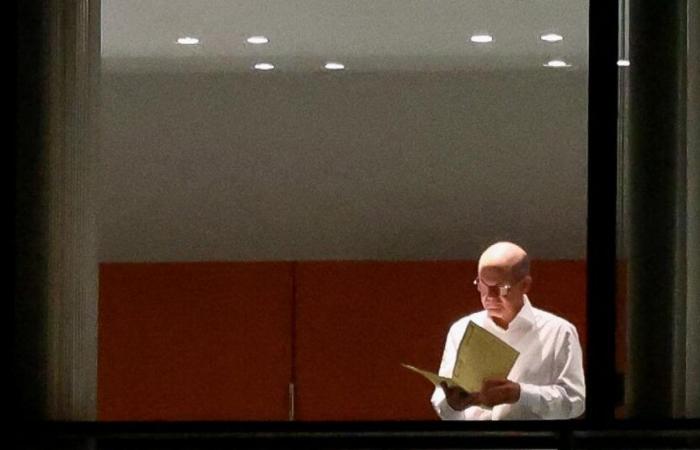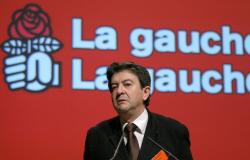Chancellor Olaf Scholz dismissed his Finance Minister Christian Lindner, accused of having destabilized the tripartite coalition.
Correspondent in Berlin
Renowned for its vigor and stability, German democracy is faltering. After more than a year of conflicts and despite fierce last-minute discussions, the three partners who today form the government coalition led by Olaf Scholz were forced to separate, thus opening the way to early legislative elections. The divorce ended in the form of a dismissal, targeting Finance Minister Christian Lindner, who was dismissed under the decision of the Chancellor.
The president of the FDP himself provoked the beginnings of a rupture a few days ago, by calling for a head-to-head turnaround in government economic policy, incompatible with the founding coalition contract that the three had concluded at the end of 2021. “The Minister of Finance shows no desire to implement our economic for the good of our country within the federal government. I no longer want to impose such behavior on our country,” declared Olaf Scholz, willingly letting anger show and accusing his minister “selfishness”. “He has too often blocked legislation inappropriately and used petty partisan tactics,” he added.
The adventure of the tricolor tripartite coalition – a first in the country's parliamentary history – thus ended in acrimony. “Olaf Scholz has shown that he does not have the strength to allow our country to make a new start,” Christian Lindner replied dryly.
For a moment, the election of Donald Trump to the White House – which risks threatening transatlantic stability – suggested that the environmentalists, the SPD and the FDP would adopt a reflex of union in the face of the adversity. It didn't happen. During his first mandate, the billionaire targeted Germany, accusing them of not spending enough on NATO. As a result, the future isolationist president will come to power at a time when Europe's largest economy is experiencing one of the most serious political crises in its history. “This is not a good day for Germany or Europe. But we will continue to assume our responsibilities,” at least in the short term, promised the Green Vice-Chancellor Robert Habeck, also Minister of the Economy and Climate.
A rare event
It is rare in Germany for coalitions to fall apart, the most notable precedent dating back to 1982 according to the same scenario which is repeated today. At the time, the Liberal Party, led by the then Minister of the Economy, Otto Graf Lambsdorff, had already caused the rift, forcing the Social Democratic Chancellor Olaf Schmidt to leave his post. Helmut Kohl (CDU) came to power shortly after.
Deeply destabilized by the Russian invasion of Ukraine, which called into question cheap Russian energy supplies to Germany, the government very quickly showed signs of fragility. In the process, the three parties in power suffered heavy electoral setbacks. The FDP in particular has disappeared from several regional parliaments. A supporter of strict budgetary discipline, his Minister of Finance quickly found himself at odds with the slippage of public finances.
A judgment from the Constitutional Court in November 2023, calling into question the government's budgetary policy, marked the beginning of the end. On Wednesday, Olaf Scholz allegedly ordered his Finance Minister – according to his last account – to abandon the budgetary safeguards. The SPD and the Greens – see it as a brake on growth, unsuitable in times of recession, they believe. “ I could not accept this as it would have been a violation of my oath.”a dit Christian Lindner.
The ball is now in the hands of the Bundestag. At the chancellor's request, parliamentarians will decide on January 15 whether they accept that an early vote be held before the theoretical date of September 2025. If so, the election could take place in March, almost two months before the inauguration of Donald Trump. After France and the episode of the dissolution of the National Assembly, a new political chapter is now opening in our neighbor across the Rhine.






